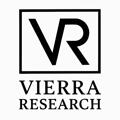
The Archive Theory of Time
A model of cursor‑based navigation in a stored temporal architecture
Abstract
This paper introduces the Archive Theory of Time (ATT), a novel framework for understanding time
as a structured, read/write architecture rather than a linear continuum.Grounded in information theory, memory science, and symbolic logic, ATT conceptualizes time as a storage array divided into immutable temporal sectors navigated by a dynamic cursor. The theory distinguishes between physical entropy and informational mutability, proposing that events can be re-accessed, reframed, and recursively integrated—without violating causal integrity. Integrating insights from trauma psychology and artificial intelligence, ATT formalizes the concept of “trauma loops” as cursor stalls, where unprocessed data prevents forward progression. We further explore the Law of Immutability, which constrains sector-level editing and preserves systemic consistency. The theory invites interdisciplinary application—from quantum physics to therapeutic models—and offers a new lens through which to interpret time slips, recursive insight, and high-level cognition. ATT challenges prevailing notions of temporal flow by positioning time not as a river, but as an archive—navigable, bounded, and strategically accessible.Click here to download the full paper (PDF)
Temporal Ascent Model
Accelerated Insight Through Recursive Time Mapping
What if the clarity you gained this morning… could reach the version of you who needed it two years ago?
The Temporal Ascent Model (TAM) reframes how memory and meaning interact—not as passive reflections, but as tools for transformation.
Where most models move forward, TAM loops backward—installing insight into your past narrative to sharpen present action.
This isn’t self-help. It’s structural recursion.
Insight. Projection. Acceleration.Read the full theory:
Gödel Reframed
Incompleteness as System Error
Gödel’s Incompleteness Theorems are often interpreted as proof that all sufficiently expressive systems are inherently limited—that there will always be true statements they cannot prove. Over time, this interpretation has hardened into philosophical doctrine: a universal ceiling on logic itself.This paper challenges that assumption.It proposes that what we call “incompleteness” may, in many cases, result from system mismatch—not logical necessity. If a system fails to validate a statement, that failure may not indicate that the truth transcends the system—it may indicate the truth is not defined in that system at all.This reframe suggests that Gödel’s results reveal the limits of applying one architecture to all questions. The inability to prove may not reflect the limits of logic, but the limits of context. Truth, then, may not be universal—but conditional. And proof may not be absolute—but system-bound.Read the full theory:
Published via OSF | DOI: 10.17605/OSF.IO/SK9AT
© 2025 Vierra Research — [email protected]